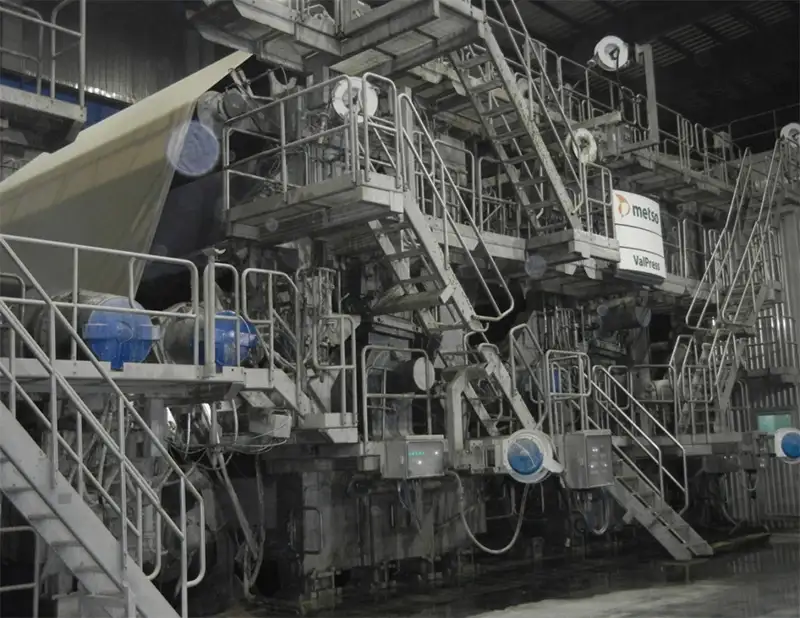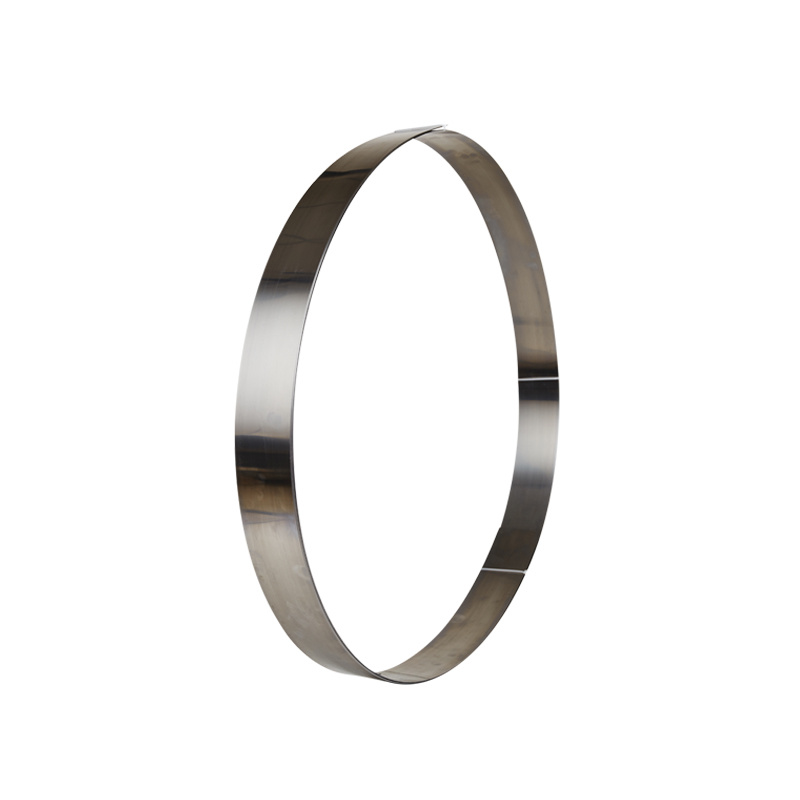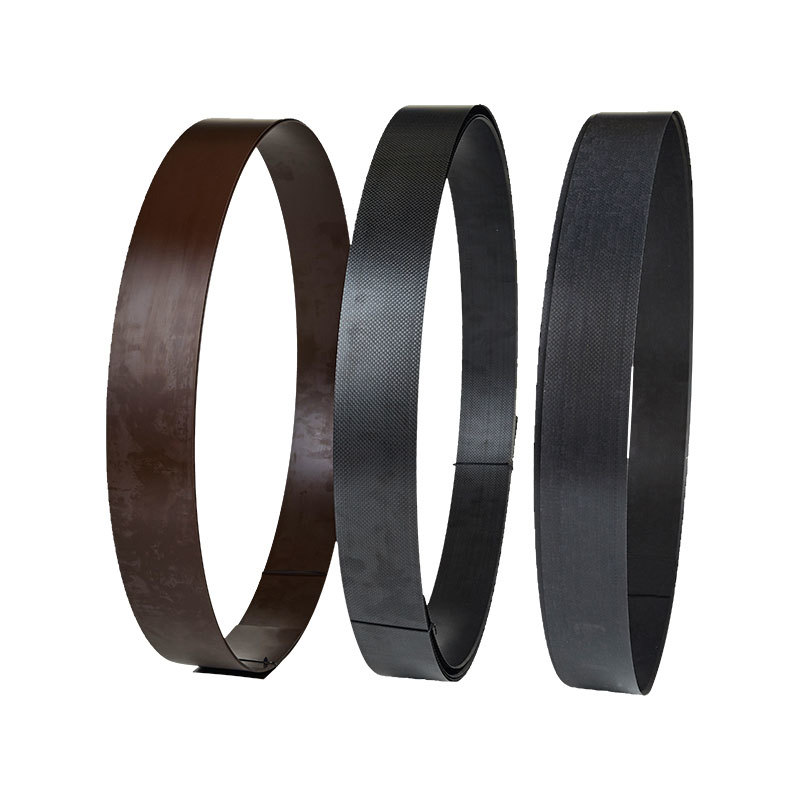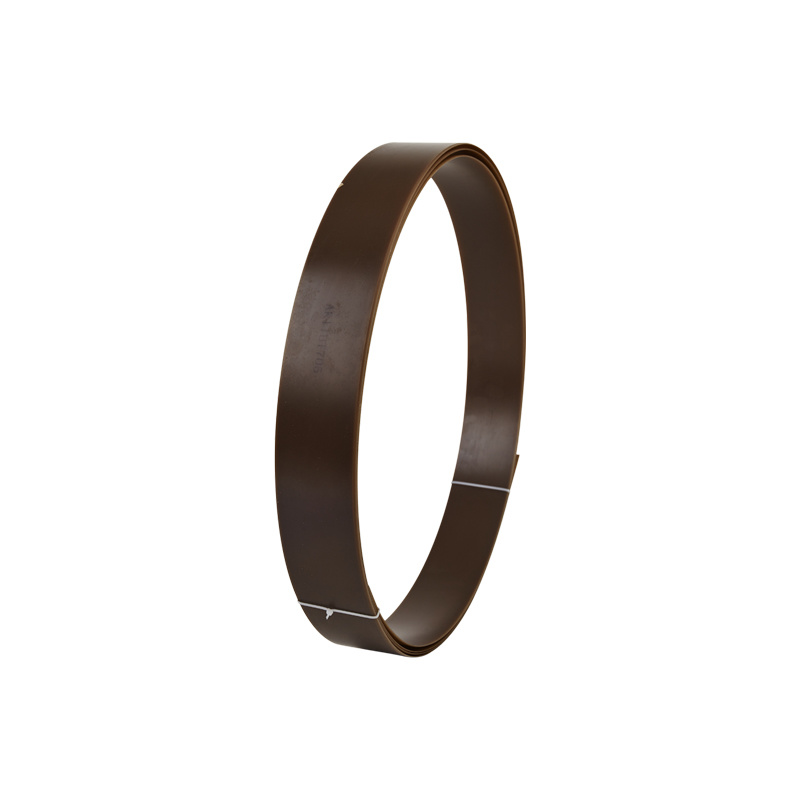Press Section
Function: Through the action of mechanical extrusion, the free water in the wet paper is removed, so that the paper reaches a certain strength and enters the next process.

Suitable for various parts of the press section scraper type and use recommendations
It is recommended to use polymer scraper for rubber rolls in the press section. If the material of the press section is stone rolls, it is recommended to use one knife.4 carbon, 6 carbon or full carbon content cleaning bladeIf you use a stainless steel scraper, the hardness should not exceed 50 degrees, HRC<50 degrees. Two knivescarbon fiber blade.
With the use of "national waste" and the increase of papermaking fillers, a large amount of stickies will remain on the surface of the central roller. With the accumulation of a large amount of stickies on the surface of the central roller, abnormal problems such as paper breakage will occur. Therefore, improving the cleaning ability of the surface of the central roller has become a top priority.
JBEIK T700 High Carbon Scraper Blade
It is a scraper blade developed and produced by WEIHAI JBEIK NEW MATERIAL CO. , LTD for the two major problems of peeling the center roller and cleaning the center roller:
The use of military T700 carbon fiber and aerospace nano resin production, more wear-resistant than ordinary carbon fiber on the market (more than 47%)
Features: higher wear resistance, better self-moistening and sealing, no delamination, not easy to jam, cleaning and peeling effects reach or even exceed imported brands
In the use of blades, the guide roller and stone roller of the mesh pressing part must ensure that the blades are lubricated normally, evenly distributed, and reduce blade wear and prolong the service life of the roller surface.
The angle of the mesh pressure part is generally less than 25 degrees. Line pressure is less than one kilogram
Nowadays, there are more and more fillers in papermaking, and the center roller is becoming more and more difficult to clean, so the linear pressure is getting larger and larger, and some are added to 2kg, so it feels that the blade is becoming less and less durable. This phenomenon is more obvious in the wrapping paper machine.
| Location | Paper type | Angle | Line pressure g/cm |
| wire breast roll | 40~60 | 25° | 120(0.6) |
| 60~80 | 25° | 100(0.5) | |
| Forming Department | 40~ | 25° | 120(0.6) |
| 60~ | 25° | 100(0.5) | |
| Adjusting roll | 40~ | 25° | 90(0.45) |
| 60~ | 25° | 80(0.4) | |
| Deviation roller | 40~ | 22° | 80(0.4) |
| 60~ | 22° | 70(0.35) | |
| Press Section | 40~ | 20° | 0~90 |
| 60~ | 20° | 0~90 | |
| wool cloth | 40~ | 25° | 120(0.6) |
| 60~ | 25° | 90(0.45) | |
| center press | 40~ | NO.1,NO.2 25 ° | NO.1,350(1.7) NO.2,100(0.5) |
| 60~ | NO.1,NO.2 25 ° | NO.1,300(1.5) NO.2,90(0.45) |
|
| 40~ | NO.1,NO.2 23 ° | NO.1,300(1.5) NO.2,100(0.5) |
|
| 60~ | NO.1,NO.2 23 ° | NO.1,250(1.25) NO.2,90(0.45) |
| Roller | Material | |
| Press Section |
felt roll Center 4P Roller Center 4P Roller Upper pressure roller Upper pressure roller center press roll (for cardboard) |
Rubber, resin roller ceramic dissolving and shooting roller Stone Roller Rubber, resin roller Rubber, resin roller |
Key words:
Application Products





